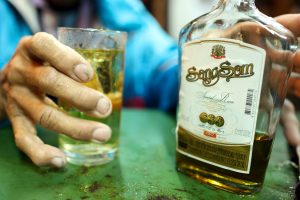 A Toast to Tradition and Tourism
A Toast to Tradition and Tourism
Imagine planning your dream vacation to Thailand, only to find your favorite beach bar closed due to a religious holiday. For years, this was a common scenario for tourists visiting during major Buddhist holidays. However, in a significant policy shift, Thailand has decided to relax its long-standing alcohol ban on these sacred days, aiming to balance cultural respect with economic growth.
Understanding the Traditional Alcohol Ban
Thailand, a predominantly Buddhist nation, observes five major religious holidays: Makha Bucha, Visakha Bucha, Asarnha Bucha, Khao Phansa (the start of Buddhist Lent), and Ok Phansa (the end of Buddhist Lent). Historically, the sale of alcohol was strictly prohibited nationwide on these days to honor religious practices and promote sobriety. This policy, while rooted in cultural reverence, often caught tourists off guard, leading to dissatisfaction and economic losses in the hospitality sector.
The New Policy: Where and When Alcohol Sales Are Permitted
Recognizing the need to accommodate international visitors and support the tourism industry, the Thai government has introduced specific exemptions to the alcohol ban. As of May 9, 2025, the following establishments are permitted to sell alcohol on the five major Buddhist holidays:
| Venue Type | Conditions and Notes |
|---|---|
| International Airports | Alcohol sales allowed in passenger terminals. |
| Licensed Entertainment Venues | Must operate under entertainment venue laws and be located in designated tourist areas. |
| Hotels | Must be operating under the Hotel Act. |
| Special National or International Events | Venues must be approved by the Public Health Minister based on recommendations from the Tourism and Sports Minister. |
These changes aim to enhance the visitor experience while maintaining respect for religious traditions
Balancing Cultural Sensitivity and Economic Needs
The decision to ease the alcohol ban is part of Thailand’s broader strategy to revitalize its tourism sector, which is a significant contributor to the national economy. By allowing alcohol sales in specific venues during religious holidays, the government seeks to
-
Enhance Tourist Satisfaction: Providing a more consistent and enjoyable experience for international visitors.
-
Boost Economic Activity: Increasing revenue for businesses in the hospitality and entertainment sectors.
-
Promote Thailand as a Tourist-Friendly Destination: Aligning with global expectations while preserving cultural values.
However, the government emphasizes that these measures are implemented with strict regulations to prevent underage drinking and ensure public safety.
Conclusion: A Harmonious Blend of Tradition and Modernity
Thailand’s move to relax the alcohol ban on Buddhist holidays represents a thoughtful approach to modern governance—one that respects cultural heritage while adapting to the needs of a globalized economy. By implementing controlled exemptions, the country aims to provide a welcoming environment for tourists without compromising its religious value,
FAQs
1. Are alcohol sales now allowed everywhere in Thailand during Buddhist holidays?
No, alcohol sales are only permitted in specific venues such as international airports, licensed entertainment venues in tourist areas, hotels, and approved event venues. The general ban remains in place elsewhere.
2. When did the new policy take effect?
The revised regulations were announced on May 9, 2025, and are effective immediately.
3. What are the five major Buddhist holidays affected by this policy?
The holidays are Makha Bucha, Visakha Bucha, Asarnha Bucha, Khao Phansa (start of Buddhist Lent), and Ok Phansa (end of Buddhist Lent).]
4. Why did Thailand decide to ease the alcohol ban?
The decision aims to boost tourism and economic activity by accommodating international visitors’ expectations while maintaining respect for religious traditions.
5. Are there any measures to prevent misuse of this policy?
Yes, the government has implemented strict regulations, including age verification and public safety measures, to ensure responsible alcohol consumption in the permitted venues.
